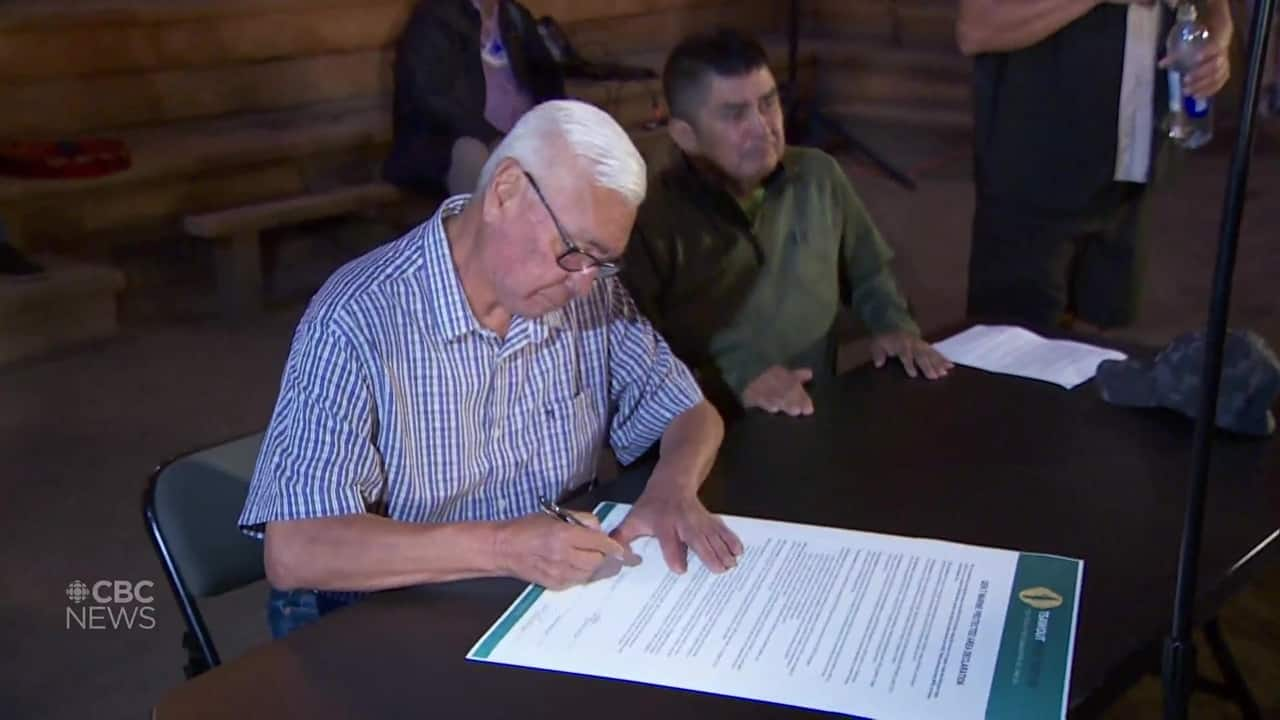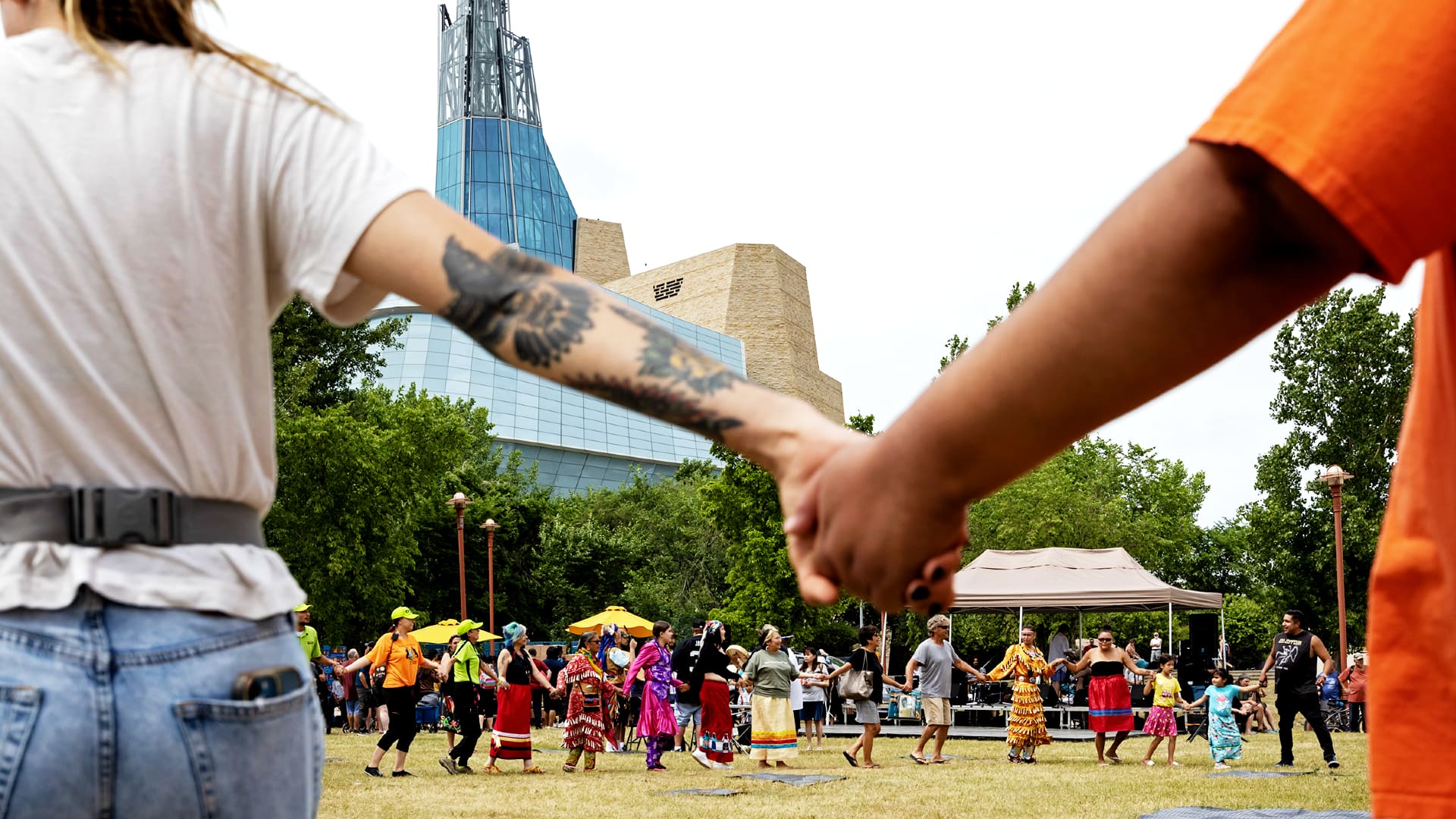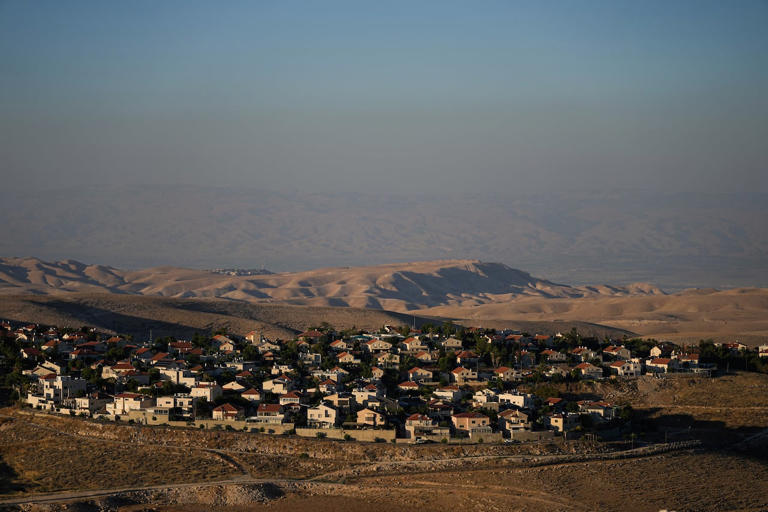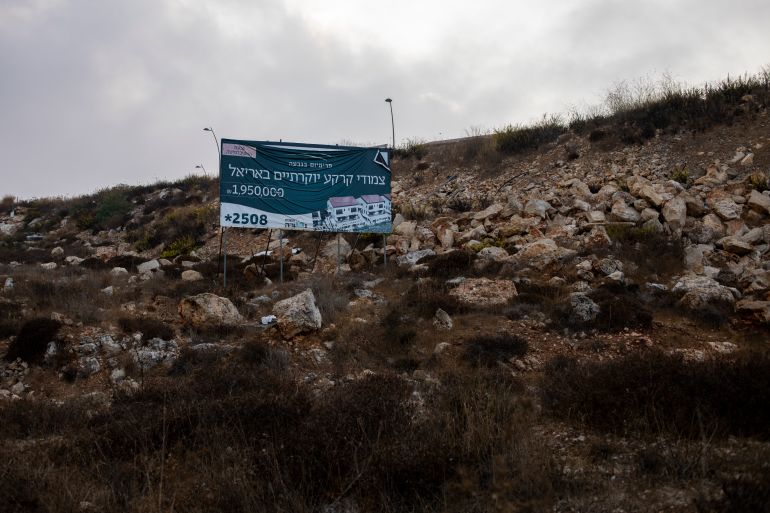Canada forcing Northern communities to 'go back in time,' warns NWT premier
Story by Catherine Cullen • CBC
While many in the Arctic can no longer afford to feed themselves and others leave the North altogether, some federal cabinet ministers are only pretending to listen to the concerns of Northern Canadians, says the premier of the Northwest Territories.
"We're at a critical point. So it's nice to say that you care, but we need action behind those words. It's time for Canada to show they care about the most marginalized people," said Caroline Cochrane in an interview with CBC Radio's The House.
The stakes go beyond the well-being of the people who live in the North, according to the premier. In order for Canada to continue to assert sovereignty over the Arctic, people need to live, and stay, in the region, Cochrane said.
"The price of living in the Northwest Territories has gotten so high because of the supply chain issues that we're seeing. People are leaving," she said.
"We need people to move to the North so that we can ensure that the Arctic is safe … you can't talk sovereignty without having people in the land."
But that's a struggle with the high cost of food and lack of infrastructure such as hospitals, schools, roads and telecommunications.
Cochrane cited conversations she had on a recent trip to an Arctic community.
"They're telling me they can't feed their children, that they don't have enough money to make it, that the opportunities, the food and the stores are too expensive," she said.
"The traditional hunting that we're used to is disappearing because of climate change."
Cochrane has brought those concerns to federal ministers, but says at times "they pretend they listen, but they don't really hear. Then it's more than frustrating."
Cochrane said there's a funding issue, in particular because the Northwest Territories receives federal money based on population. She said that while a community like Grande Prairie, Alta. — with a population of just over 60,000 — will receive funding for a single municipality, her territory — with a population of approximately 45,000 — needs to spread funding across 33 municipalities.
"We are not getting ahead. In fact Canada is actually forcing us to go back in time," she said.
"People are hungry, the cost of living has hit everyone in Canada, and unless there's substantial funding to the North, then I'm worried about what's going to happen to families up there, because we can't afford to be there any longer."
Some of the concerns about the federal government ring true for Natan Obed, leader of Inuit Tapiriit Kanatami, a nonprofit that represents Inuit in Canada.
"There are times when I have seen leadership from the prime minister and ministers of this government all the way down to officials within federal departments who, if they so choose, can move these issues forward," he said.
Related video: Provinces, territories sign on to national climate adaptation strategy (cbc.ca) Duration 2:02 View on Watch
"And then on the other side, you can use bureaucracy to stall and to say that there isn't money there, things aren't possible," he said.
Obed said that while Ottawa has made some progress on issues affecting Inuit in recent years, the work is far from over — and the stakes are high for the country. He called on the government to do more to support housing and infrastructure in Inuit communities.
"What we see in the housing crisis, and what we see with the idea of Arctic sovereignty — Canada is an unfinished space. It is a country that is still growing into itself, and sometimes, for ease, the government of Canada imagines that that process is already complete," he said.
"We are the bedrock of Arctic sovereignty for Canada, and it just never has really sunk in for the government or those who make the decisions in relation to defence."
'We have not done enough,' minister says
The minister for Northern affairs, Dan Vandal, told The House that he is listening to concerns Northerners are raising, but he said the challenges faced by the North will take decades to address.
"We have not done enough. I think if you talk to every minister, every minister will, and every MP will realize we have not done enough," he said.
"But at the same time we've done more than any government in history in investing in northern issues as well as investing in partnership with Indigenous governments and Indigenous peoples all over the north."
Vandal said that when he travels to the region, people most often mention housing, infrastructure and food security as the most pressing issues.
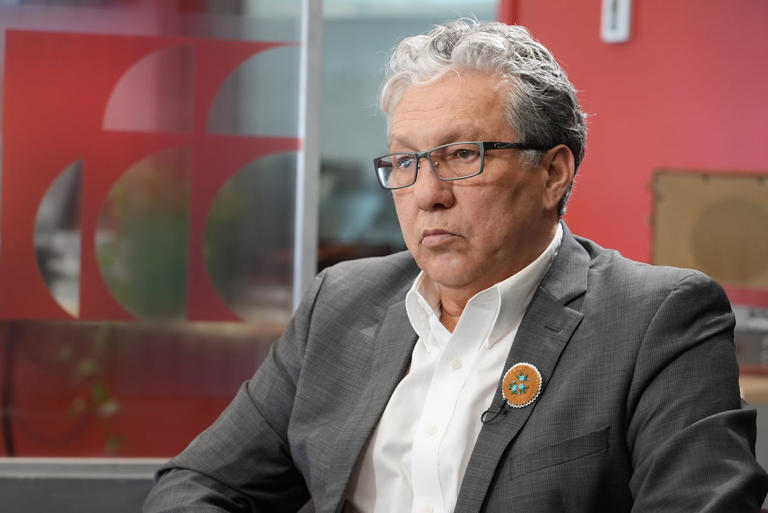
Northern Affairs Minister Dan Vandal said in an interview with The House that addressing issues facing the north, such as a lack of housing, will take decades. (David Gunn/CBC)© Provided by cbc.ca
He added that the government knows meeting those needs will be a challenge, but said Ottawa is up to the task.
"We've been doing everything we possibly can over the last two years, but it's going to take substantial, long-term investments and partnership with Indigenous governments, with territorial governments, with local leaders and local citizens to really turn that corner,"
"It's going to take longer than four or five years. It'll take 20 years, but we are committed to continue doing this work as long as we possibly can."
Mining critical minerals is a potential source of prosperity for the Northwest Territories.
But, Cochrane said, a lack of infrastructure is stifling that opportunity in her territory, which has a long history of mining.
"We don't have road systems to get to those critical minerals," she said.
"If you have to fly everything into the mines, if you can't get the infrastructure, clean energy into the mines, then I'm afraid we're going to be left behind in that as well."
While building the necessary roads will be expensive, Cochrane said it will pay off over the long-term.
"If Canada's talking about reconciliation, if Canada's talking about arctic sovereignty and arctic safety, then they need to make sure that they are doing their part to protect people in the North, to give us the same opportunities as people in the south," she said.
"It's time."








